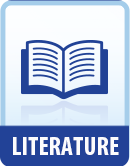|
This section contains 5,128 words (approx. 18 pages at 300 words per page) |

|
SOURCE: Smith, Catherine F. “Jane Lead's Wisdom: Women and Prophecy in Seventeenth-Century England.” In Poetic Prophecy in Western Literature, edited by Jan Wojcik and Raymond-Jean Frontain, pp. 55-63. Rutherford, NJ: Fairleigh Dickenson University Press, 1984.
In this essay, Smith analyses the marriage of feminine concerns and spirituality in Lead's works, focusing on the figure of Sophia, or Wisdom, who appeared to Lead in her visions. Studying several of Lead's writings, Smith notes how Lead's personal experience as a wife, an impoverished widow, and a disempowered women is reflected in the language she uses to articulate her prophecies.
In the sevententh century, a time when we generally agree that religion served as idiom for nearly everything, certain women viewed their own spiritual crises as prophetic. As some of them (or their advocates) argued, God's wisdom had been directly revealed to them, who were among the weakest vessels. This was evidence...
|
This section contains 5,128 words (approx. 18 pages at 300 words per page) |

|


